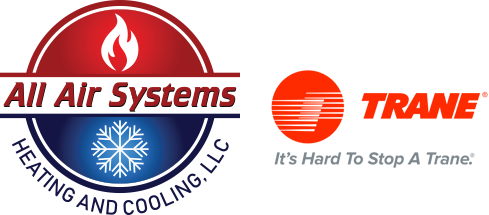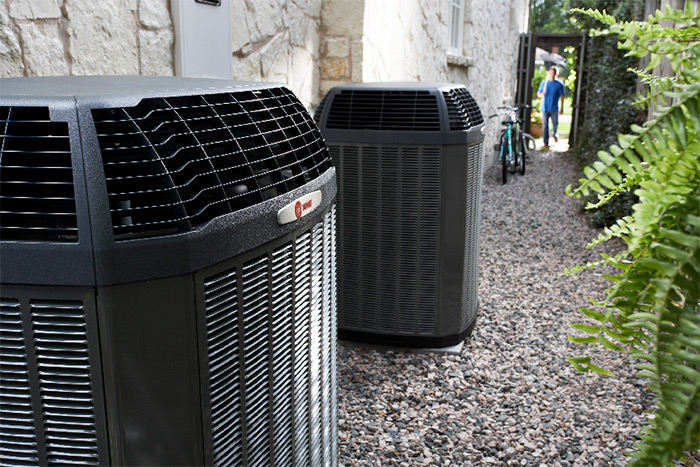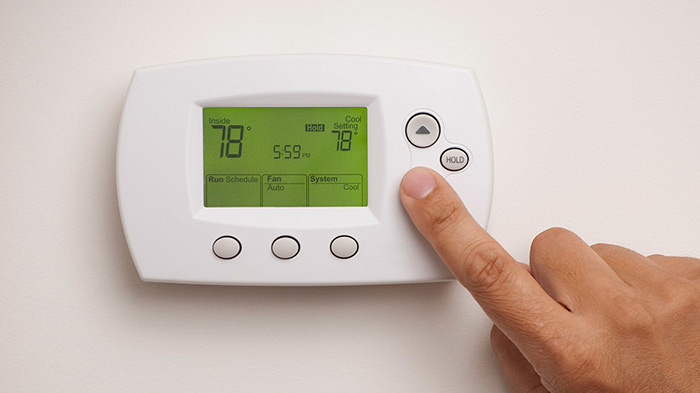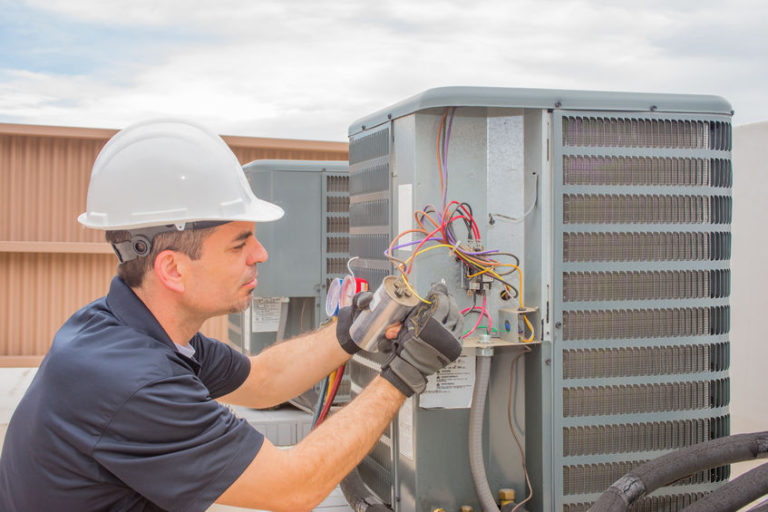Air conditioning is a need in most homes, regardless of where you live. Even in areas where the climate is relatively mild year-round, an air conditioner is necessary for the comfort and health of everyone in your household. Air conditioning not only keeps an interior cold, but it also circulates the air, reduces humidity, and filters hazardous airborne contaminants.
A new air conditioner is a significant investment, and it should not be handled carelessly. There are several things to consider before installing a new HVAC system, whether you’re a first-time homeowner or if you’ve lived in your house for a long time. Choose a professional with years of experience and positive recommendations when purchasing a new furnace, heat pump, or air conditioning system.
Your HVAC contractor will be able to assist you in selecting the best system for your home, taking into account the size and characteristics of your property, as well as your comfort and budget concerns. They will also be able to recommend and install improvements to existing mechanical systems.
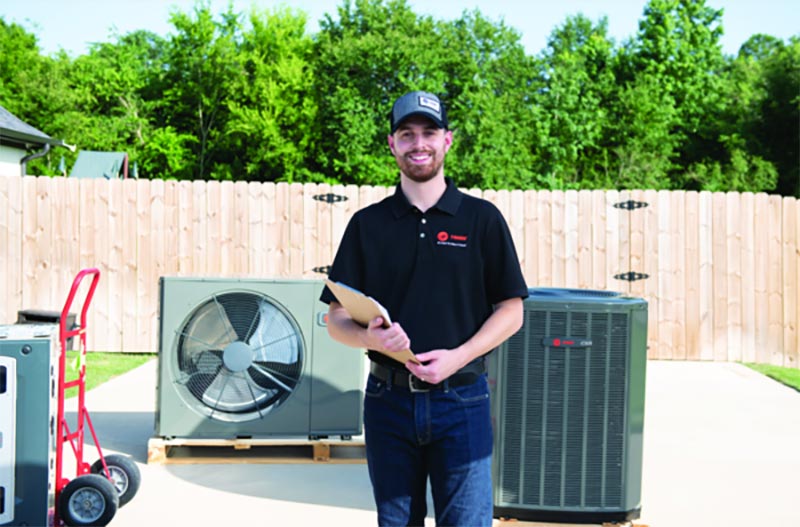
New units last 15 to 20 years on average, so it’s a significant investment that should be thoroughly investigated before making a decision. Even if your air conditioner is operating, you may be able to save more money by replacing it due to the increased energy efficiency of a newer system. If your air conditioning system is more than ten years old, contact All Air Systems , Monmouth and Ocean County’s preferred HVAC specialist, to see if it’s better to replace rather than repair.
Here are some things to consider, things to look for in an air conditioner, and reasons why prices vary from system to system if you’re installing a brand new HVAC system or wondering if it’s better to repair or replace.
Choosing an Air Conditioning Contractor to Install a New System
Hire an HVAC contractor to assist you in installing a new AC system to guarantee that it is installed correctly. Find the best contractor or firm for the project by doing some research. You may want to get a referral from a friend or family member, although local home service referral sites like Angie’s List are a good option as long as you verify their BBB rating as well. A simple Google search can help you identify the best HVAC contractor for your needs. Take a look at their online reviews on Google Local, Yelp and other sites.
Consider calling two or three different contractors, to discuss their process and and get a quote. Ask questions like: How long do the majority of their products last? Is it possible for them to install your unit swiftly and efficiently? How do they determine their estimate for your project? What’s the average cost of a new unit and what can affect the cost of installation? Get the make and model of the unit if they are responsible for providing it so you can look into and research the equipment. Last but not least, most manufacturer warranties have conditions that must be met, such as a professional examination and installation by a licensed HVAC contractor.
Size and Capacity
It’s critical to pick the right size unit for your home. While your contractor will assist you with this aspect of the project, it is critical that you understand why this is so vital. When a unit is the wrong size for your home’s square footage, it can cause a lot of problems. If the unit is too tiny, it will not be able to chill your home efficiently. You’ll overwork your system and never feel entirely comfortable. If the unit is too large, it will constantly cycle on and off, wasting energy and raising your utility bill. You’ll spend a lot of money and energy if it’s too big. Your contractor will want to complete a load calculation, even if you are replacing an earlier model.
Your new HVAC system’s heating and cooling capacity should be checked by a competent HVAC expert. Inquire about the system’s reviews and whether it meets the basic standards and is adequately proportioned. A load calculation will be required if you are purchasing a new air conditioning unit. A load calculation can assist you figure out what size air conditioner you’ll need for your home.
If your HVAC contractor sizes your new HVAC system only on the basis of square footage, they’re doing it wrong. Before sizing a new system, make sure your HVAC specialist thoroughly inspects the house. They should never just replace the present system with one of the same size. Your HVAC specialist has to match the thermal parameters of your home to the cooling capability of the new unit. The size of the house, temperature zone, roof material, directional orientation, number of appliances, and other relevant information are all taken into account in a typical estimate.
The BTU (British Thermal Unit) is a unit of heat equal to the amount of heat required to elevate a pound of water by one degree Fahrenheit. Before you buy a new air conditioner, make sure to check its capacity so you can get the finest one for your home. The cooling capacity of air conditioners is measured in Tons rather than British Thermal Units (BTU). A ton is approximately 12,000 British Thermal Units per hour (BTUh).
Furthermore, cubic feet per minute (CFM), or the number of cubic feet of air that can move through a specific place per minute, is critical for selecting the correct capacity for your HVAC system.
Fortunately, an HVAC contractor can choose the proper size, capacity, and type of HVAC system for you. Complicated measures are used, such as those specified in ACCA’s Manual J for properly sizing a unit.
It’s just as crucial to choose cooling capacity based on the size and needs of your home as it is for heating. You may choose an air conditioner that will give the proper amount of cooling in all areas of your home by speaking with a qualified and experienced technician.
Energy Efficiency
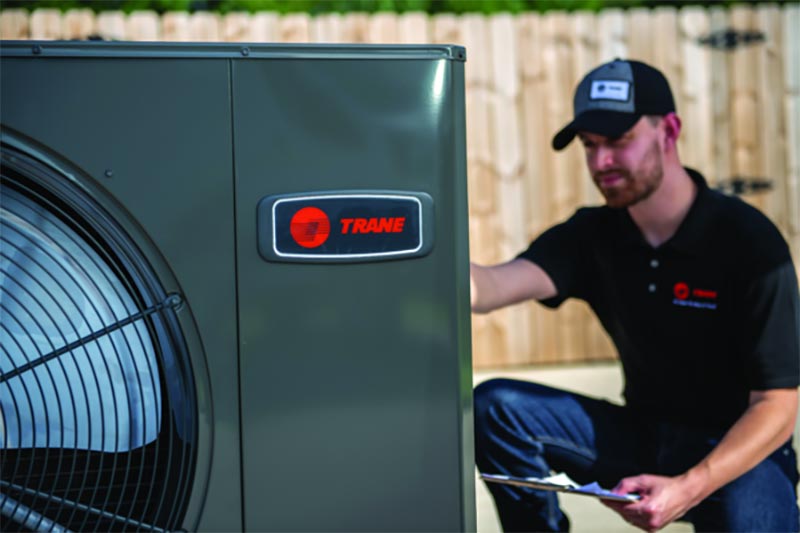
Heaters and air conditioners take a lot of electricity. In fact, heating and cooling our homes makes up around half of our total energy consumption (U.S. Dept. of Energy). As a result, before purchasing a new HVAC system, find out the energy consumption of your new HVAC unit. This will assist you in conserving energy and money throughout your home.
The Annual Fuel Utilization Efficiency of a furnace is used to determine its heating efficiency (AFUE). The AFUE number indicates how efficient a furnace is.
The Seasonal Energy Efficiency Ratio is used to determine the efficiency of an air conditioner (SEER). The minimum SEER standard was raised from 13 to 14 by the US Department of Energy (DOE) in 2015. Keep in mind that a grade of 14 to 22 is regarded to be the most energy-efficient. Look for a model that is rated at least a 14 on the efficiency scale, but try to find one that is even higher.
The lower the lifetime energy cost, the higher the SEER rating. Even though units with higher SEER ratings are more expensive at first, they will save you money in the long run. When buying a new air conditioner, look for the ENERGY STAR designation, which identifies the most energy-efficient models on the market.
A skilled contractor will need to properly install your new HVAC system in order for it to achieve the optimum efficiency. If the item is installed poorly or incorrectly, the energy efficiency rating is rendered meaningless.
Type of Compressor
Examine the type of compressor that best suits your needs when looking at a machine.
Single-Stage Compressor — A single-stage compressor cools the house while working at maximum capacity. Because this compressor only has one speed, it cycles on and off more frequently, constantly operating at full capacity and consuming the most energy. As a result, this type of compressor is less efficient than other compressors in terms of energy consumption.
Two-Stage Compressor— There are two stages in a two-stage compressor: medium and high. The high setting is for hot and humid days, while the medium setting is for cooler days or overnight. When the outside temperature elevates and it takes too long to cool the indoor space, the two-stage air conditioning compressor switches to a higher level. Because the compressor can run in the medium setting for the majority of the year, it uses less energy and lowers your power bills. It’s also more comfortable for you; by running at the medium compressor speed for longer periods of time, the unit does a better job of removing humidity from the indoor air, making the space more comfortable and allowing you to raise the thermostat temperature a degree or two while still feeling cool. This also saves you money! A two-stage compressor costs more than a single-stage compressor, depending on the SEER rating.
Motor for the Condenser Fan
The condenser fan motor, which is part of the outdoor condensing unit, is another factor to consider. These fans safeguard the compressor in the air conditioner from overheating. These fans also cool the super-heated refrigerant that passes through the outside air conditioning unit’s condensing coils. You can extend the life of these motors by performing annual maintenance. You can repair a fan motor for a few hundred dollars instead of replacing the entire AC condenser (which can cost thousands of dollars).
Variable speed motors connect the motor control drive to the compressor, allowing the motor speed to be adjusted based on air temperature. With this motor, you might save up to 40% on your condenser motor’s annual energy use. It’s energy-efficient because, on mild days, the unit can stay on all day, saving electricity by not turning on and off all the time. In addition, rather than running at full speed all of the time, the motor starts up gradually and only operates as fast as is required.
A single-stage condenser fan motor is similar to a single-stage compressor in that it only has one speed, which is full capacity. While single-stage condenser fan motors are by far the most prevalent, they are more expensive to operate and are often louder than variable-speed condenser motors.
The Level of Noise
Most people don’t realize how noisy an air conditioner can be until it’s too late. A noisy air conditioner can impair your enjoyment of the wonderful sounds of nature around your property, as well as disrupting a tranquil discussion if you are having guests over for a back yard barbeque.
Although the HVAC industry has made significant progress in reducing HVAC running noise, you should still examine the system’s noise levels before making a decision. Inquire about decibel levels from the manufacturer and your installer (db). The decibel is a unit of measurement for how loud something is. Humans can easily listen to sounds at or below 110 decibels, but chronic exposure to these levels can cause ear damage. Look for systems that are less than 60 decibels. At this time, the quietest units are between 50 and 60 decibels. Paying attention to this will help you avoid your new HVAC system causing any unnecessary noise in or around your home.
The noise level is also affected by how far you are from the unit and where it is situated outside your home. It might ever bother you if the condensing unit located far away from where your family and friends would gather, on the opposite end of the house.
Here are several features that can help you minimize the noise level of your air conditioning:
- Variable-speed fan — The fan may be configured to run at different speeds, allowing the air conditioner to function at a lower noise level.
- Compressor insulation is a noise-reducing casing that surrounds the compressor.
- Fan blades that reduce noise — These blades are specifically designed to reduce noise.
- Insulated base pan — Located beneath the air conditioner, this minimizes noise and protects the unit from corrosion caused by water droplets.
Type of Refrigerant
Refrigerants are a fundamental element that enables the use of air conditioning. In today’s home uses, there are two basic types of refrigerants:
R-22 — This refrigerant is also known as Freon. This type is no longer in use, and it is being phased out due to increasing environmental concerns.
R-410A — The current standard, R-410A, is ozone-friendly because it includes no chlorine. This refrigerant operates at a higher pressure than Freon, hence R-410A compressors use thicker metals to resist the increased pressure.
Brands
There are a variety of high-quality heating and air conditioning brands to choose from, and they will all keep your home toasty in the winter and cool in the summer.
Our recommendation is to concentrate on the individuals who will be installing the system rather than the brand. Consumer evaluations can be confusing and deceptive, and brand research can be time-consuming. Often, the reason a system does not perform well for someone is because it was not installed properly by a well-trained HVAC technician, or it wasn’t the right size/capacity for the home or building. Popular brands include Trane, Ruud, Lennox, and Carrier, but we recommend that you start by selecting a reputable local contractor who is familiar with these brands so you don’t have to be.
It takes some effort to shop for a new air conditioner, but getting the correct one can assure constant, dependable comfort for years to come. Contact us right away if you’re in the market for a new unit. We provide excellent HVAC service, install and maintain all major brands, and offer a cost-effective maintenance program to keep your system running smoothly.
